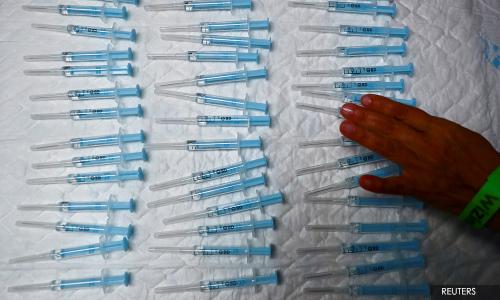LETTER | Covid-19 - what exactly would a patent waiver solve?
LETTER | There has been much discussion about the proposed intellectual property waiver in the last few weeks, particularly as the US appears to have at least partly endorsed it in respect of vaccine patents, as noted in Prof Jomo Kwame Sundaram’s article. However, significant concerns remain.
Jomo states that the waiver request is ‘very specific, modest and limited’. However, on closer inspection, this does not appear to be the case. For example, the proposers of the waiver provided a preliminary patent landscape of selected Covid-19 candidate therapeutics. However, all of the patents indicated were submitted more than two years ago i.e. before Covid-19 became an issue (some were much older).
It, therefore, begs the question of how wide the ambit of the waiver may actually be considered to be given that it may cover any drug from the last 20 years that may be deemed to have a therapeutic effect, contrary to the proposers own statements on the matter. The proposal is therefore not as specific or modest as it may seem at first glance.
The original proposal is also aimed at waiving rights not just for patents, but also for designs, copyright and trade secrets. It seems that many countries are uncomfortable that the waiver is therefore not particularly limited either, as it would allow large sections of the law to be overridden and there are many diverse views on the subject as a result.
It should be noted that some have said that the waiver proposal is disingenuous, as India, one of the waiver proposers, has a past history of its compliance with The Agreement on Trade-Related Aspects of Intellectual Property Rights (Trips) agreement being disputed, and that rather than targeting Covid-19, the waiver is really aimed at attacking the intellectual property (IP) system more generally.
Indeed, this seems to be reinforced by the lack of any attempt for the proposers to compromise on the position in order to facilitate action, for example by suggesting a waiver of a smaller part of the Trips agreement such as section 31(f), which would at least remove the restriction of manufacture for domestic use only and would probably be far more agreeable to the majority of countries.
The dogmatic approach and inflammatory language used by proponents of the waiver has not been conducive to obtaining resolution.
Issues on safety have also been raised, which the proponents have dismissed as irrelevant. However, they have missed the point that there are roughly twice as many regulatory issues with generic pharmaceutical products compared to original pharmaceutical products.
In other words, the quality control is generally better for the IP-holder’s products. While there are regulatory agencies who maintain oversight for such matters, it is impossible to check everything, and often the impact is only known after the event. We do not need any further concerns being raised over the quality or efficacy of vaccines.
Opponents to the waiver often state that the Trips agreement already provides flexibilities such as compulsory licensing. The counter-argument is that the requirements for compulsory licensing are too complex. However, at least some of these requirements can be overridden for health emergencies, which the pandemic would surely meet the criteria for.
But leaving aside the arguments for a moment, it should be noted that very few countries have actually tried to make use of these provisions for Covid-19 at the time of writing. The reason is not the complexity, considering the nature of circumstances, but the fact that IP is not a major hurdle in the first place as the chair of the WHO covid-19 solidarity trial has explained.
There is simply no need for a waiver at the present time because the problems are logistical and political in nature, as the CEO of the Serum Institute has confirmed, and indeed Jomo states, ‘suspending their IP rights does not ensure urgent access to Covid-19 vaccines’.
But what is the downside of the waiver? The largest concern is that if the waiver is implemented, the pharmaceutical companies will no longer have to publish information on how to manufacture the products, as they are currently bound to do under the patent system.
This in turn will result in less information being available to third party manufacturers, and increases the risks of a future pandemic and possibly prolongs the current one. Advocating the dismantling of the pharmaceutical patent system, is therefore extremely worrying, as there may be serious negative consequences in the future as a result.
In addition, if the waiver was implemented, it would not help obtain the know-how required from the originators. Making a vaccine is not as simple as following a recipe, as the knowledge and skills of the original pharmaceutical suppliers is also needed, hence it is important to keep them on-side. Consider this - if their IP rights are waived, do you think they would be more or less likely to help?
In summary, the IP waiver may have little or no effect in increasing the supply of Covid-19 vaccines but could increase the health risks or lead to serious adverse consequences in respect of the current pandemic or future ones.
Therefore, the Malaysian government should give serious consideration to the above points when deciding whether or not to support the waiver proposal and determine whether alternative options may be preferred instead such as endorsing a selected component of the proposal (as suggested above) or relying on the existing flexibilities within Trips (which they have done previously).
We would be keen to take part in any discussion that the government may wish to have with stakeholders.
The writer is chair of the Patents Committee, Malaysian Intellectual Property Association (Mipa).
The views expressed here are those of the author/contributor and do not necessarily represent the views of Malaysiakini.
RM12.50 / month
- Unlimited access to award-winning journalism
- Comment and share your opinions on all our articles
- Gift interesting stories to your friends
- Tax deductable
